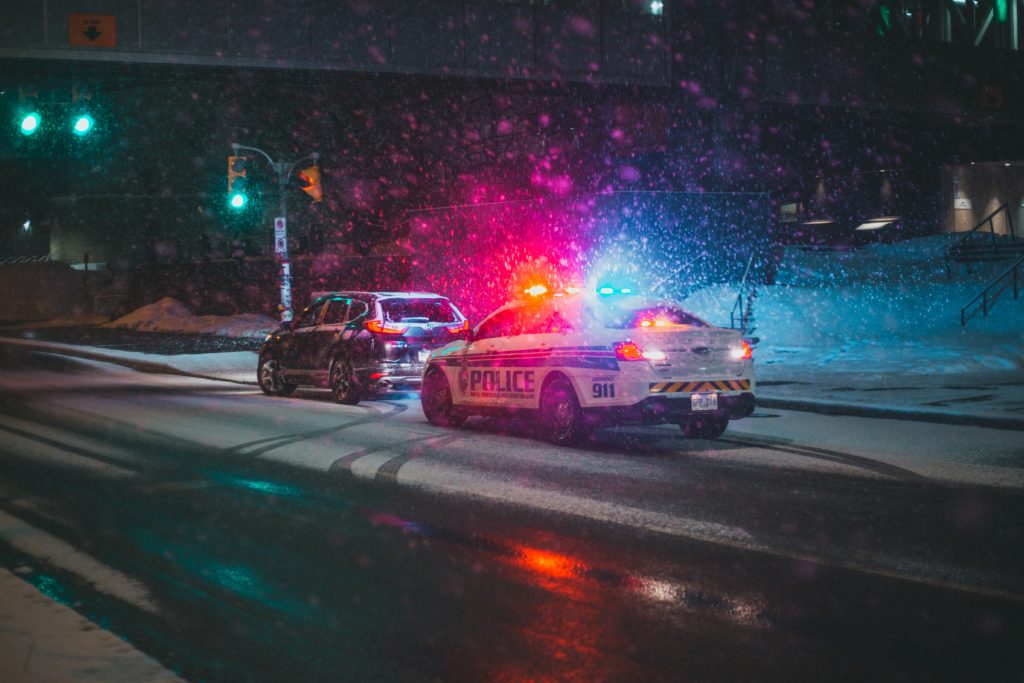HOW LONG CAN AN OFFICER STOP A DRIVER IF THERE IS NO EVIDENCE OF ILLEGAL ACTIVITY?
The United States Sixth Circuit Court of Appeals in Ohio recently held an officer may not keep a driver at a traffic stop indefinitely and exhaust every possibility of criminal activity before allowing a driver to leave a traffic stop. U.S. v. Warfield, Case No. 17-3930 (2018).
In Warfield, Defendant was driving on the highway when the arresting officer stopped him for an alleged lane violation. The officer claimed Defendant’s vehicle drove over the marked lanes “on several occasions.”
The officer smelled alcohol and asked Defendant to submit to field sobriety tests. Defendant passed the field sobriety tests and there was no indication Defendant was driving the vehicle while impaired by alcohol.
The officer decided to further detain the Defendant and requested a K-9 unit to perform a drug check of the vehicle. The K-9 unit determined there were no drugs in the vehicle. The officer continued to detain the vehicle and asked the Defendant if he had permission to search his car, and the search yielded evidence of illegal credit card activity. Defendant was then charged with illegal credit card fraud.
Defendant appealed on the basis that the officer had no reason to detain him for as long as he did when there was no evidence of criminal behavior based on the officer’s initial suspicions.
TOUCHING THE LANE LINE IS A NOT A MARKED LANES VIOLATION
For an officer to initiate a traffic stop on a driver, the officer must have a reasonable suspicion that a traffic stop has taken place. United States v. Gross, 550 F.3d 578, 582 (6th Cir. 2008). Whether an officer has probable cause is determined on a case by case basis where a court would determine if a reasonable officer in the same situation would have initiated a traffic stop.
In Warfield, the officer claimed he had probable cause to pull Defendant over because of a marked lanes violation. However, merely touching a lane line is not a violation of Ohio’s marked lane statute. Ohio Revised Code Section 4511.33.
DRIVER PASSED ALL FIELD SOBRIETY TESTS
Despite lacking probable cause to pull Defendant over, the officer conducted an investigation to determine whether Defendant was operating a vehicle while under the influence of alcohol (OVI).
Defendant’s driving was not erratic, and he was not speeding. Defendant’s only possible mistake was his failure to follow a perfectly straight line down the highway–not a crime in Ohio.
Further, the Defendant was asked to submit to field sobriety tests and passed each test requested of him by the officer. Despite having no evidence of impaired driving, the officer elected to further detain Defendant so that he could “exhaust every option available to him” in order to discover evidence of criminal behavior. He requested a K-9 unit to find evidence of a crime where he had not yet found any.
TRAFFIC STOP CANNOT GO ON INDEFINITELY UNTIL POLICE FIND SOMETHING ILLEGAL
The Court in Warfield held in their opinion that “an officer who pulls over and questions an erratic driver whom he reasonably believes to be intoxicated, for example, cannot, on that basis alone, investigate the driver for tax fraud.” United States v. Winters, 782 F.3d 289, 303–04 (6th Cir. 2015).
The officer did not initially suspect illegal drugs. He was investigating possible impaired driving and transitioned to possession of drugs when his OVI investigation showed no evidence. The Court held that since the traffic stop was illegal and violated the Fourth Amendment’s protection against unreasonable searches. It reversed the conviction.
It is important to contact an attorney who is knowledgeable about all possible defenses available to you including whether the officer violated your Fourth Amendment protection against an unreasonable search. If you have questions about your Columbus criminal or OVI related charges, talk to our defense attorneys at 614-361-2804.



